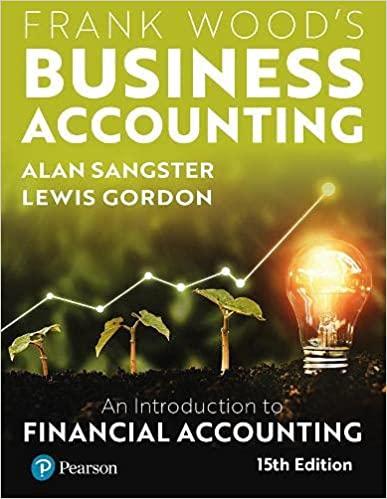Answered step by step
Verified Expert Solution
Question
1 Approved Answer
1 . Facts: Party A entered a contract with Party B to sell a car for $ 1 0 , 0 0 0 . Party
Facts: Party A entered a contract with Party B to sell a car for $ Party C who is a friend of Party B accompanied Party B during the negotiation and signed the contract as a witness. However, Party A later found out that Party B wasn't interested in purchasing the car and only signed the contract to please Party C Party A now wants to hold Party B responsible for breaching the contract and failing to pay the agreed upon amount. Legal issue: Does Party C being a witness and not a party to the contract, have any obligations or rights under the contract?
Facts: Party A and Party B entered a contract for the sale of a property, where Party A agreed to sell the property to Party B for $ However, after signing the contract, party A realized that a specific local law prohibits the sale of properties in that area for less than $ Party A wants to cancel the contract. Legal issue: Can Party A cancel the contract?
Facts: Party A agreed to sell a rare collectible to Party B for $ However, prior to finalizing the transaction, both Party A and Party B discover that the collectible is a replica and not the authentic item they believed it to be Both parties want to cancel the contract due to a mistake of fact regarding the authenticity of the collectible.
Legal issue: Can the contract be canceled based on the mistake of fact regarding the
authenticity of the collectible?
Facts: Party A enters a contract with Party B to sell a painting for $ After the
contract is signed, both parties discover that the painting is a genuine masterpiece by
a wellknown artist, significantly increasing its value. Party A claims that they made a
mistake in evaluating the true worth of the painting and wants to cancel or renegotiate
the contract. Legal issue: Can Party A cancel or renegotiate the contract based on a mistake of law or mistake of fact regarding the value of the painting?
Facts: ABC Inc. entered a contract with XYZ Corp. for the supply of raw materials to be used in the manufacturing process. The contract was for a period of one year, and both parties intended to fulfill their obligations as per the terms. However, due to unforeseen circumstances, a governmentimposed lockdown was imposed, prohibiting the operation of nonessential businesses, including ABC Inc. The lockdown lasted for an extended period of six months, making it impossible for ABC Inc. to fulfil its obligations under the contract. ABC Inc. approaches XYZ Corp., informing them of the situation and requesting a suspension of the contract until the lockdown is lifted. However, XYZ Corp. refuses the request and demands immediate payment of the due amount for the raw materials already supplied. Legal issue: Did the doctrine of frustration apply to the contract between ABC Inc. and XYZ Corp, thereby relieving ABC Inc. of its obligations?
Facts: John is a skilled programmer, entered a contract with XYZ Corporation, a software development company. According to the terms of the contract, John agreed to develop a new software application, specifically designed for XYZ Corporation's internal use, within a specified timeframe. In return, XYZ Corporation agreed to pay John a fee of $ upon successful completion of the project. However, after John delivered the completed software application to XYZ Corporation, the latter refused to pay him the agreedupon fee. XYZ Corporation claimed that the contract was unenforceable due to the lack of consideration and legality. Legal Issues: Did both parties exchange something of value in this contract?
Facts: John Smith, a yearold single father, was a hardworking, lawabiding citizen living in a small suburban neighborhood. Mark Johnson, a notorious criminal with connections to several unlawful activities, had a longstanding grudge against John. Mark approached John one evening after work, with the intention of seeking revenge for a past incident that involved John's cooperation with the police. Mark threatened John, stating that unless he cooperated, his daughter's life would be in grave danger. Fearing for his daughter's safety, John was coerced into committing a series of illegal activities that included robberies and drug trafficking. Mark used the fear of violence, harm to loved ones, and possible reprisals to keep John under his control. Mark used manipulative tactics such as constant surveillance, threats to his daughter's life, and blackmail to force John into submission. John endured several months of mental and emotional torture, always fearing for the safety of his daughter, knowing that any attempt to escape or report Mark's activities would lead to severe consequences. Issues: Can John's coerced actions be considered involuntary, given the circumstances under which they were carried out?
Facts: John, the plaintiff, was in the market for a new home and engaged in negotiations with Fine, the defendant, based on their advertisement for a property
Step by Step Solution
There are 3 Steps involved in it
Step: 1

Get Instant Access to Expert-Tailored Solutions
See step-by-step solutions with expert insights and AI powered tools for academic success
Step: 2

Step: 3

Ace Your Homework with AI
Get the answers you need in no time with our AI-driven, step-by-step assistance
Get Started


